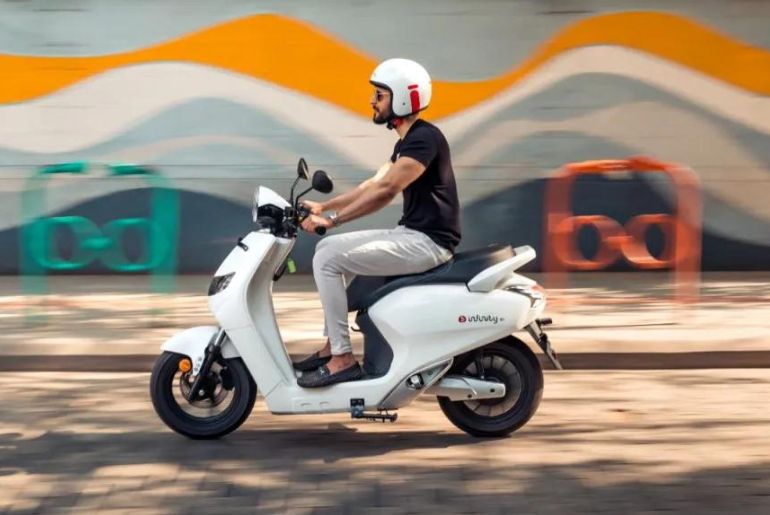The Infinity E1X, a new battery-swappable iteration of Bounce Infinity’s well-liked Infinity E1 model, has been shown.
With this model, Bounce Infinity makes history as the first OEM to homologate and market a scooter created with battery swapping in mind.
According to a press statement from Bounce, the Infinity E1X is scheduled for statewide release in June 2024 and is compatible with all major battery-swapping networks in India. It can also be customised for any new battery-swapping network.
The Bounce Infinity E1X is priced between INR 55,000 to INR 59,000 ex-showroom and features an energy cost of just INR 1 to INR 1.5 per km, depending on usage and the swapping operator. This will significantly lower the acquisition cost and provide a very low running cost, the release stated.
The battery-swapping feature is ideal for users with long daily commutes, as it allows them to exchange depleted batteries for fully charged ones at any network station, avoiding concerns about charging times and locations.
Bounce has introduced two-speed variants for the battery-swapping models to cater to different user needs: up to 55 kmph and 65 kmph. These scooters are designed to work with various battery-swapping networks and need only minor modifications for integration. Additionally, Bounce is developing a faster variant with a top speed of 92 kmph to meet minimum speed requirements in certain export markets.
Vivekananda Hallekare, CEO and co-founder of Bounce Infinity, stated, “India is the world’s second-largest two-wheeler market, yet the true benefits of EVs haven’t been fully realized. EVs offer numerous innovations, including making vehicles more affordable. One such innovation is separating the battery from the vehicle and allowing users to pay only the upfront cost of the scooter. The E1X is designed to integrate seamlessly with any battery swapping network with minimal modifications.”
The press release also highlighted that opting for battery-swappable EVs like the Bounce Infinity E1X can result in nearly 40% savings compared to traditional internal combustion engines or fixed-battery electric vehicles.

